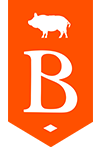Palaeography, genealogy, pink gloves and Aero girls – what's that all about?
It's all about outreach, which comes in many shapes and forms. Making archives widely available is the core business of the Borthwick, determining both day to day work and special projects and producing an enormous number of varied outside activities.
From the first, the Borthwick engaged with the outside world. We were born out of a series of summer schools, to which came archivists, local historians and many other interested people.
Our extensive publications programme - beginning in 1953 and still maintained - is designed to share and make more accessible both sources and associated research.
Today digitisation projects are making archive sources available in new ways and to new and even wider audiences.
In the early years, Canon Purvis, the first Borthwick Director, made a number of trips to the USA, publicising the Borthwick and its holdings through extensive lecture tours.
Palaeography

A selection of our palaeography
guides, past and present
The teaching of palaeography (the study of old handwriting) has been something which we have continuously offered since we opened.
Palaeography may sound very obscure and specialist, but it is a vital skill for anyone – no matter whom – wanting to look at older documents: it is not just the preserve of university academics and students.
Back in the 1960s, we were offering regular palaeography classes for the general public, and we also began to produce and sell 'wallets' of document facsimiles and transcriptions to aid teaching and learning.
This is just one example of how we put teaching high on the agenda. In the 1980s we even pioneered a local history certificate course for those wanting to develop their research skills.
Genealogy
Genealogists have come to the Borthwick since 1953 to use our valuable family history resources.
In 1981 we produced a pioneering Guide to Genealogical Sources in the Borthwick Institute of Historical Research, designed to give advice as well as to document our archives.
Today such sources are being made available online, and we continue our role in advising and engaging with family historians through family history fairs, documents classes, talks and other events.
Pink gloves
Outreach and engagement with the wider community can take many forms.
In 2000, York experienced its worst floods since 1980 and huge numbers of properties all over the city were flooded. This included a local organisation with riverside premises.

Reporting the Borthwick rescue of flooded documents
The Borthwick took the records in and they were spread over the large floor area of St Anthony's Hall to dry.
Its stored records had been soaked with flood water and it asked the Borthwick to help.
Under the supervision of the Borthwick Conservator, teams of Borthwick staff worked to regularly turn over and air the papers, many of which had to be released from their plastic folders.
Papers were supported upon card 'cradles', specially designed by the Conservator.
The York flood disaster received great media coverage, and what was happening at the Borthwick also hit the national press, with articles in the Guardian and the Times Higher Educational Supplement.
The coverage in the University Magazine showed Chris Webb, Acting Director, in what became his signature pink gloves!
Chocolate: The Chocolate Apple, the Aero Girls, and Arnold Rowntree
The Borthwick has recently begun a series of 'Opening Up Archives' events, to share, explore and celebrate the variety of documents and objects in the archives.
The first events took place in 2013 - the first two being curated by the two Borthwick trainees under The National Archives' training scheme.

Rowntree Aero girls pictures, displayed at the Mansion
House, York, October 2013
'Unwrapping the Chocolate City - Re-imagining the Chocolate Apple' explored Borthwick archive material surrounding the Terry’s Chocolate Apple made between 1926 -1954.
The 'Who were the Aero Girls?' project, which generated a great public response and national media coverage, showcased the Aero Girl paintings which are part of the Rowntree archive at the Borthwick; the paintings went on display at York Mansion House during October 2013.
The third event: 'Arnold Rowntree and Conscientious Objection', a day class held at the Borthwick, explored the tensions caused by York's history of pacifism and conscientious objection during World War I.

